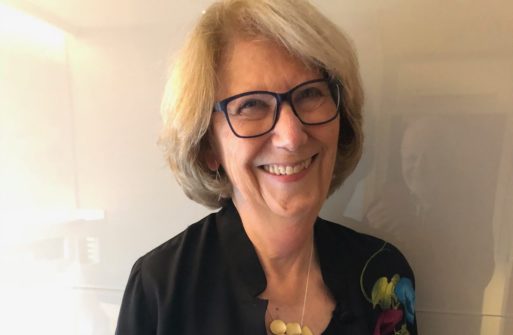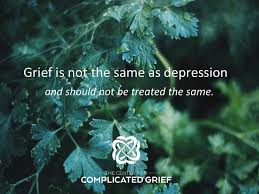
An internist and psychiatrist, Dr. Kathy Shear is widely recognized for her work in bereavement studies. She has developed a targeted psychotherapy, Complicated Grief Treatment which has proved to be efficacious in three different trials.
Editor’s note: This interview has been edited for length and clarity.
Melissa Gouty: Thanks, Dr. Shear, for talking with me today. First of all, when did complicated grief become a condition in and of itself?
Dr. Katherine Shear: It was first proposed sometime in the 1980s by Mary Horowitz, and the condition is now included in the International Classification of Diseases, which is the World Health’s Organization’s manual that describes conditions that require treatment. The ICD covers both physical illnesses and mental disorders. Prolonged Grief Disorder, which is the same as complicated grief, is now listed.
Most people do think that there is some form of grief that is problematic. When grief becomes so prolonged that a person is impaired, that they can’t adapt, that’s complicated grief. We all, of course, grieve in our own way, and we adapt in our own ways too. It takes us varying amounts of time to adapt, and it doesn’t happen quickly for most people. But if it’s more than a year, and the griever is still experiencing really pervasive yearning, longing, sadness, and difficulty with pre-occupying thoughts of the person who died along with other evidence of emotional pain, then it’s probably complicated grief.
Melissa: So people who cannot heal, cannot move on, cannot regain stability in their life for an extended period of time after a loss have complicated grief? How is that different from depression?
Dr. Shear: I just want to say one thing about what you just said. We usually talk about moving forward instead of moving on. There’s sensitivity in some people to the idea of moving on. Moving forward seems to be more comfortable, just to be clear about that.
Melissa: Okay.
Dr. Shear: The reason you’re asking about depression is that grief and depression do share some common features. People who are experiencing either one have sad feelings. They often have changes in bodily functions like sleep and appetite. There can be increased physical pain involved, which may be associated with guilt or anger or anxiety. These are all very common in depression and grief.
But there are some really marked differences too. The main one is that the heart of grief is the loss, and the feeling state is primarily one of yearning and longing. Even in the sadness, the quality of the sadness that we feel in grief has a strong yearning quality, a longing for a reunion. We want that person back. We long to have them back with us.
 In depression, on the other hand, the sadness has a quality of more gloominess and despair, disappointment and pessimism. It’s not focused on any one particular thing. In grief, we are very, very focused on either missing the person so much or caring about them so much. For example, grieving people may have a change in appetite or weight loss because they don’t want to eat dinner because it’s a reminder that the person they love isn’t there. It’s always connected in some way with the person who died.
In depression, on the other hand, the sadness has a quality of more gloominess and despair, disappointment and pessimism. It’s not focused on any one particular thing. In grief, we are very, very focused on either missing the person so much or caring about them so much. For example, grieving people may have a change in appetite or weight loss because they don’t want to eat dinner because it’s a reminder that the person they love isn’t there. It’s always connected in some way with the person who died.
Whereas in depression, it’s more about the loss of the ability to care about anything. It’s more about a feeling of emptiness, or worthlessness, or despair. The despair is more global.
Melissa: I see. So depression is lack of interest in everything, while grief is sadness about the person who has died and the changes that death has brought about.
Dr. Shear: Two more small things that I want to mention.
We know from a lot of the research into depression that a big difference is that the heart of depression is an impairment in the ability to experience positive, pleasant emotions. In grief that capacity is preserved.
When I visit people who have lost someone, not infrequently, the bereaved people have periods of time where you can distract them, or someone else will distract them, and you will actually even see them smiling or laughing. They might be telling you a funny story about someone, or they might be getting distracted by a completely unrelated topic. They can do it. Then something reminds them about the situation and their minds come back to the present and the loss, and they become very, very sad again. But they can experience positive emotions. That’s very different from depression, where people have a lot of trouble. They actually have an impairment that prevents them from experiencing positive emotions.
And the other thing is that we’ve done three different studies, and in each one of them, we compared a grief treatment to a very good, proven, effective, evidence-based treatment for depression. And the depression treatments don’t help grief symptoms. They just don’t help. You really need a grief treatment.
Melissa: That’s very interesting. The word “impairment” helps me to understand the difference between grief and depression.
Dr. Shear: Good. Okay.
Melissa: Tell me about the Center for Complicated Grief.
 Dr. Shear: The Center for Complicated Grief was established after we completed these studies because our dean at the School of Social Work said, “It’s great that you did this, but how are people going to know about this?” I wish it were a treatment center, but it isn’t. For a variety of reasons, we are not able to actually see people and treat them at the Center for Complicated Grief. Basically, our Center’s mission is to improve the lives of people with Complicated Grief, but we do that through the education of professionals.
Dr. Shear: The Center for Complicated Grief was established after we completed these studies because our dean at the School of Social Work said, “It’s great that you did this, but how are people going to know about this?” I wish it were a treatment center, but it isn’t. For a variety of reasons, we are not able to actually see people and treat them at the Center for Complicated Grief. Basically, our Center’s mission is to improve the lives of people with Complicated Grief, but we do that through the education of professionals.
What you’re doing at SevenPonds is so in line with our mission. We really want to get the information that we’ve learned out into the world. We want to reach all the people who are suffering, people who are grieving intensely, as well as the public at large.
Melissa: In addition to educating people about complicated grief, what else does the Center do?
Dr. Shear: We also do continued research at the Center for Complicated Grief.
Melissa: And how many on staff there? Is it just you, or do you have other people who are working to educate and help people?
Dr. Shear: We have a full-time staff of five to six people, and then we also have other people who work with us either as colleagues or people who work on specific projects. So we’re somewhere between half a dozen people and a dozen at any given time. We’re a small group, but it’s not just me.
Melissa: What caused you to get into the area of complicated grief? How did your work evolve to move you to study this?
Dr. Shear: To be honest, it evolved serendipitously. Someone knocked on my door and said, “I’m working in an older adults’ depression unit.” She was interested in grief and had identified this syndrome, and she noticed that the depression treatments weren’t helping very much. I was doing anxiety treatments, and she thought maybe I would be able to help. She literally knocked on my door and said, “Do you think you can help?” And I said, “I’ll try.”
And then I got very caught up in it. I had a long-standing interest in attachment relationships. I had done some research after I finished my psychiatry residency and had worked in a laboratory that studied maternal-infant attachment. I didn’t really like laboratory work. I basically am much more interested in helping people, but I kept that interest in close relationships and attachment.
Then also, it became so gratifying to work with people who were struggling with grief. For a lot of reasons, it’s extremely satisfying kind of work to do. I think almost everyone who works in this field feels that way.
Melissa: So the most gratifying part of your work is seeing that you’ve helped people suffering from extended grief?
Dr. Shear: Absolutely. I was thinking about that because I haven’t really been asked that question before. I would say that what’s really most gratifying is that I’ve been able to provide a treatment approach that a lot of therapists find accessible. Therapists from all different backgrounds have found this quite easy to understand. At the heart of our treatment is the fact that we can mentor clinicians to treat patients and really help them.
Melissa: Thank you so much, Dr. Shear, for telling me about complicated grief. I look forward to talking more about the actual treatment in Part Two of this interview.
This concludes Part One of our interview with Dr. Katherine Shear with the Center for Complicated Grief at Columbia University. Please join us next week when we delve into the treatment protocol for complicated grief or Prolonged Grief Disorder.

 What is Complicated Grief?
What is Complicated Grief?


 Our Annual Seven Holiday Gifts for Someone Who Is Grieving, 2024 Edition
Our Annual Seven Holiday Gifts for Someone Who Is Grieving, 2024 Edition
 “Making Mobiles” by Karolina Merska
“Making Mobiles” by Karolina Merska
 “Hands Up to the Sky” by Michael Franti & Spearhead
“Hands Up to the Sky” by Michael Franti & Spearhead















I think I suffer from complicated grief. I don’t know where to begin. Over 4 years ago I lost t+ he one person who made me feel love and a reason to believe I had an identity and that I was loved for me. Quite complicated. It was sudden. He was hit by a car while walking for exercise. 75 years old, what I am now. We were first loves and last loves. I have 2 sons who are developmentally disabled. I’m sorry, I don’t know how to tell you. It would take too long to explain, but he came back into my life after 50+ years. I never stopped loving him, but knew I had nothing to offer. Then one day he was gone.
Report this comment